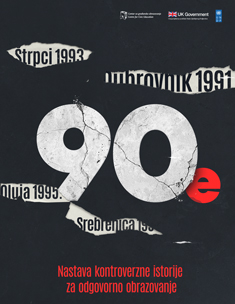
Tragom Srebrenice
Učenici dobijaju domaći zadatak – Uraditi referat na temu „Rat u BiH iz ugla ljudskih prava“, koji će biti pregledan i ocijenjen.
More...We kindly inform you that, as long as the subject affiliation of our 300.000+ articles is in progress, you might get unsufficient or no results on your third level or second level search. In this case, please broaden your search criteria.

Učenici dobijaju domaći zadatak – Uraditi referat na temu „Rat u BiH iz ugla ljudskih prava“, koji će biti pregledan i ocijenjen.
More...
Nakon odrađenih aktivnosti koje su bile raznovrsne, može se zaključiti da su ishodi postignuti u cjelini.
More...
Nastavnik/ca prati i vrednuje rad učenika/ca u tročlanim prezentacionim grupama: procjenjuje nivo njihovog pojedinačnog zalaganja, učešće u timskom radu na osnovu Dnevnika aktivnosti koji vodi grupa u toku priprema, vrednuje prezenterske sposobnosti na osnovu unaprijed postavljenih kriterijuma. Takođe, prati učešće učenika/ca u diskusiji na času, procjenjuje kvalitet odgovora i daje povratne informacije. Nastavnik/ca komentariše i procjenjuje odgovore koje su učenici/e, na stikerima, postavili na linoit tablu Nastavnik/ca ocjenjuje domaći zadatak učenika/ca koji je postavljen na linoit tablu.
More...
Formativno praćenje: razumije uputstva, umije pronaći podatke i činjenice, organizuje i pravi koncept i analogiju, upoređuje i analizira činjenice na osnovu kojih donosi zaključke. Sumativno ocjenjivanje: u skladu sa jasno gradiranim ishodima ocjenjuje učenike/ce.
More...
Samoprocjenjivanje se vrši kroz stalno postavljanje pitanja, “konferencijom” putem diskusije razmjenjuju znanja i razumijevanja, dok se kroz konceptualne mape dolazi do razumijevanje ideja i odnosa među idejama.
More...
Vrednovanje kroz odgovore i komentare učenika/ca tokom časa, kao i kvalitet eseja.
More...
Postignuća se mogu pratiti na osnovu aktivnosti učenika/ca i njihovih odgovora na času, kao i procjenjivanjem prepoznavanja značaja i vrijednosti kulturne baštine na drugim primjerima u eseju.
More...
Formativno: vrednovati aktivnost učenika/ca na času, učešće u diskusiji i doprinos timskom radu; Sumativno: vrednovati umijeće kritičkog promišljanja i sposobnost povezivanja sa ranije usvojenim znanjima.
More...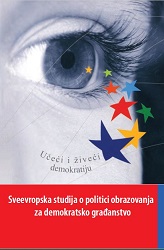
Tokom kasnih 90-tih, jedan od rezultata aktivnosti Savjeta Evrope u polju obrazovanja je bilo Obrazovanje za demokratsko građanstvo (ODG), koje je postalo zajednički cilj obrazovnih politika u Evropi. Dva glavna dokumenta politike rada su označile taj trend: • Rezolucija usvojena na Konferenciji ministara obrazovanja (Krakov, 15.-17. oktobar 2000. godine); • Preporuka (2002)12 Komiteta ministara državama članicama o Obrazovanju za demokratsko građanstvo (usvojena od strane Komiteta Ministara Savjeta Evrope 16. oktobra 2002. godine). Oba dokumenta naglašavaju centralnu ulogu ODG-a u obrazovnim politikama i reformama. U tom smislu, Preporuka Komiteta ministara je prilično jasna: u zavisnosti od specifičnog konteksta svakog obrazovnog sistema, preporučljivo je načiniti ODG «prioritetnim ciljem u kreiranju obrazovnih politika i reformi».
More...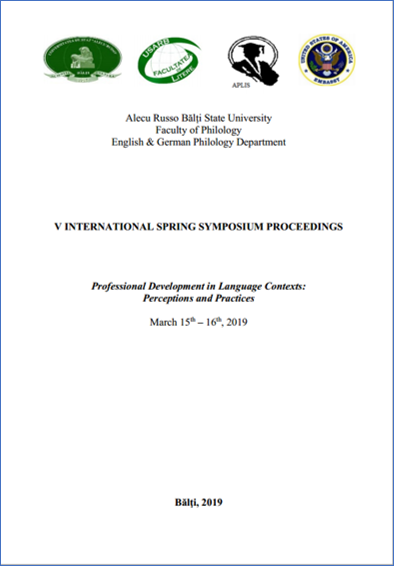
The article examines the role memory plays in the process of acquisition of French as a foreign language while using drama in the classroom. The suggested activities are designed to help learners improve and train their memory while working with the play Cocorico by Sylvaine Hinglais. The activities can be used with all learners regardless of their language proficiency level.
More...
The traditional taboos of mankind are the taboos of the sacred and of the impure. The issues of language impoliteness, verbal aggression and taboo violence have only recently come under a more intensive scientific scrutiny. The paper offers some possibilities for successfully avoiding of taboo words, wherefore it can also be a contribution for a better understanding of taboos in our own, as well as in other cultures and languages. However, the existence of differences between the languages was not sufficient to predict target-deviant behaviour. The question whether language dominance determines cross-linguistic influence has been discussed controversially in studies on simultaneously bilingual students. Flouting taboos entails direct or indirect, social or cultural sanctions.
More...
The article examines the sometimes confusing use of the terms competence and skills in the Moldovan language education context. Teachers of English as a foreign language seem to closely follow the guidelines of the national curriculum, which does not seem to facilitate the teachers’ work in their design process. The fact that the term competence is opposed to that of skill in TEFL literature seems to be ignored by the authors of the curriculum. Thus, teachers feel forced to use the exact terminology from the curriculum, even if it can cause confusion.
More...
The article is devoted to the problem of intellectual development of children of preschool age in the process of studying folk riddles. The author reveals the concept of "riddle", highlights the principles of the selection of riddles and groups of riddles that are used in pre-school. The work details the methods of work: a) with riddles – descriptions, b) with riddles containing the key distinguishing feature of the object, c) with riddles in which the description of the object is given through negation; it proved that the effectiveness of this technique has a positive effect on children's intellectual development.
More...
The article deals with the application of English proverbs and sayings for effective teaching of English Methodology. The author suggests applying them for mastering the principles of teaching in general as well as teaching English language in particular since proverbs describe the millennium-long experience of people, reflect valuable pedagogical ideas. The main focus of the author is to consider a large number of English and Ukrainian proverbs, to select the ones that concern pedagogical approaches to teaching, and to group them according to the principle mentioned. The examples also include some Ukrainian and Russian proverbs as well as English quotation when it is appropriate. Following the classification of principles developed by A.N. Shchukin, one to twelve examples are selected to exemplify each principle. The principles of teaching are of four groups: didactic (10 principles), psychological (4 principles), methodological (5 principles) and linguistic ones (3 principles). In the course of the study we came to the following conclusions: there is a large number of proverbs on pedagogical and methodological principles, the use of proverbs leads to the development of abstract and associative thinking of would-be teachers. The author claims that proverbs should be widely used in lecturing and suggests a range of tasks for students: using a proverbs give some advice to a pupil, pupil’s parents or a colleague, explain a proverb, share your school experience using a proverb, express you agreement or disagreement with a proverb, choose a proverb with a different meaning, find Ukrainian or Russian equivalents for an English proverb, discuss the relevancy of a proverb to modern conditions, match a proverb to a principal it describes.
More...
The following article examines two important components to aid students develop their English language oral skills and to enhance their understanding of literature and thinking skills. The first component is the use of the Question and Answer Relationship Format to help teachers elicit appropriate questioning and use strategies to understand literature and nonfictional text in a deeper fashion. The second component is the use of Literature Circles. This strategy, widely used in the United States, allows students to read fictional texts and discuss in depth all the components of a literary piece. Consequently, this technique also triggers students’ oral skills while in the classroom. Such a method is ideal for English Language Learners from an intermediate to an advanced and near proficient levels in any educational context. Thus, the authors also share insights from their own classroom experience while using the aforementioned techniques.
More...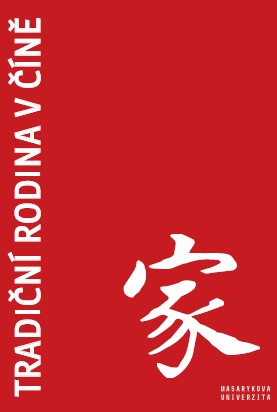
Rodina je základní společenskou jednotkou, která se jako pojem velmi obtížně vymezuje. K zápisu rodokmenů používáme graf (viz ilustrace 1.2), který by měl být alespoň dvougenerační. Muž se zapisuje symbolem trojúhelníku, žena symbolem kruhu. Neurčitý počet dětí, či jenom všeobecný zápis potomků značí symbol čtverce. Jedinec se nazývá ego a jeho generace se nazývá nultá. Graf čtený z hlediska jedince se nazývá egocentrický. Graf čtený z hlediska potomků je grafem prokreační rodiny – jinými slovy se orientuje na budoucnost. Graf z hlediska předků je grafem orientační rodiny čili je orientovaný na minulost.
More...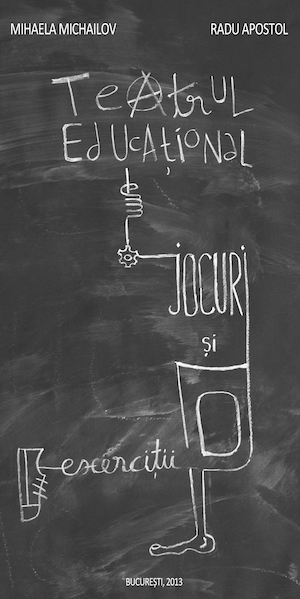
This book is a brief manual of games and theatrical exercises that the team of the show Familia Offline used during a year in the workshops that were the basis of the development of the show. The book includes dramatic writing exercises adapted to the performance script, theatrical improvisation exercises, vocal training exercises and a text about the working method of one of the theorists and practitioners who revolutionized theater pedagogy of the 20th century – Dorothy Heathcote.
More...
This book is a brief manual of games and theatrical exercises that the team of the show Familia Offline used during a year in the workshops that were the basis of the development of the show. The book includes dramatic writing exercises adapted to the performance script, theatrical improvisation exercises, vocal training exercises and a text about the working method of one of the theorists and practitioners who revolutionized theater pedagogy of the 20th century – Dorothy Heathcote.
More...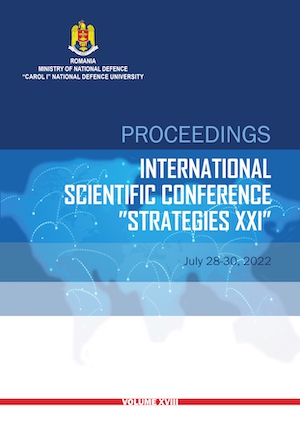
We argue that the principles and practices specific to the performance management can be used as levers in the education system and in the professional training of military personnel, especially in the higher military education system. We will focus particularly on the most important aspects of performance management: planning and goal setting, monitoring, evaluation and feedback. Beyond the conceptual aspects, we will discuss the implications that these practices have on the teaching-learning process and we will highlight their value in the military academia by elaborating on how they can be applied in three problematic situations. Thus, this article provides teachers and instructors in the military education system with learning-oriented methods that will create a productive classroom environment and highlights the opportunities that students have and the benefits at the institutional level.
More...
One of the aims of the education system is social and professional integration of young graduates. But in the ever-changing world, we live in today, choosing a career becomes a very difficult task. Today's students, subjected to the flow of information from a very young age, enter school with a great deal of knowledge about the world around them. The extracurricular activities in which they participate during the school years open their horizons of thought and many of them may be attracted to several areas, thus being in a very difficult position: what to choose, when I find that I am attracted to more things/professions and I think I can do them well? Therefore, career counseling becomes extremely important in the life of any young person. Counseling refers to a process in which a professional establishes a relationship – based on trust – with a person who needs support. During this process, the young student expresses his/hers ideas and feelings about a problem and receives support in clarifying their meanings, in identifying value patterns based on which solutions will be formulated. The counseling process involves guiding a young person to a profession for which he/she shows interests and skills. At the heart of this process one can find self-knowledge, vocational education, career education, exploration and career planning
More...